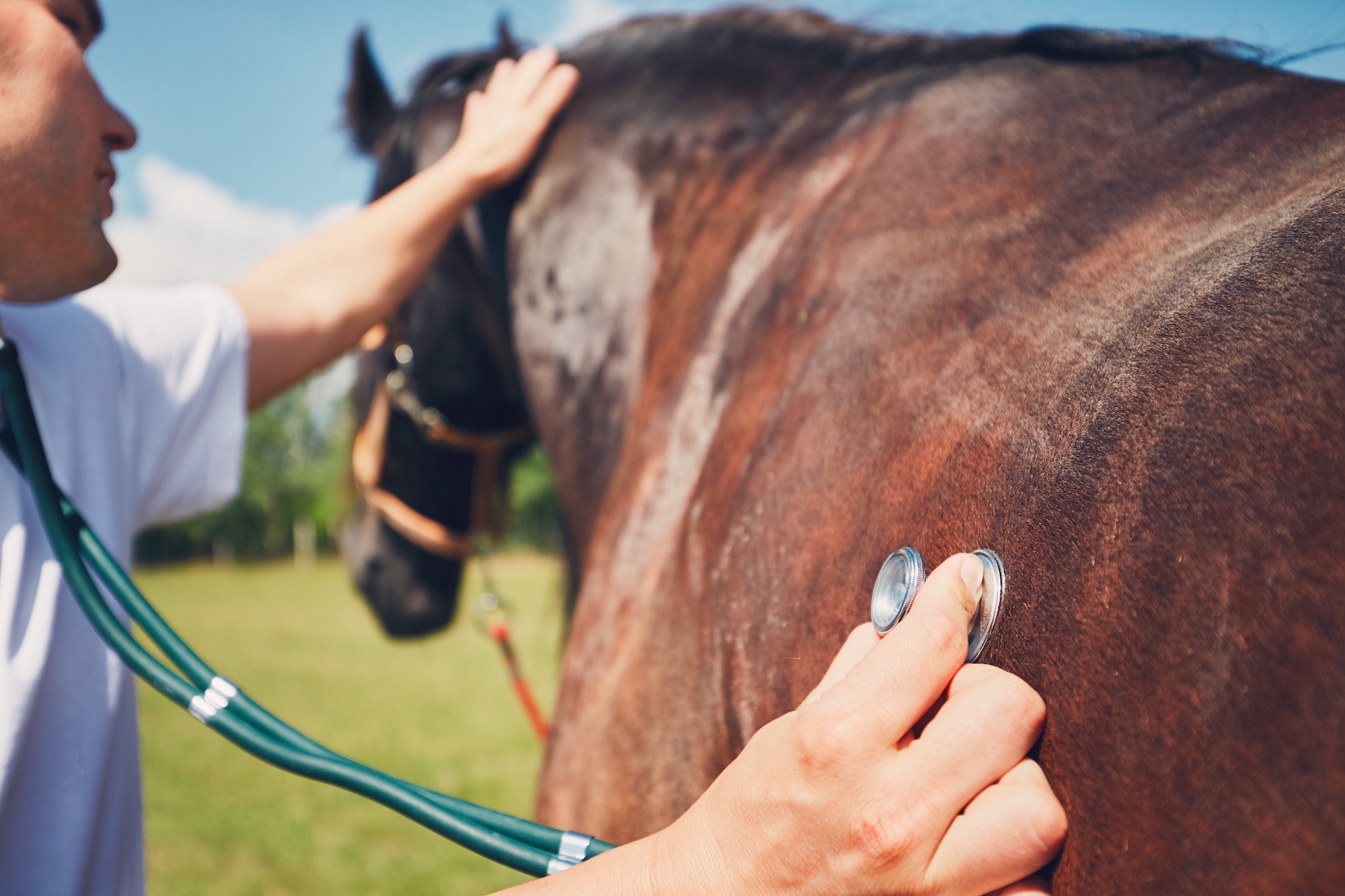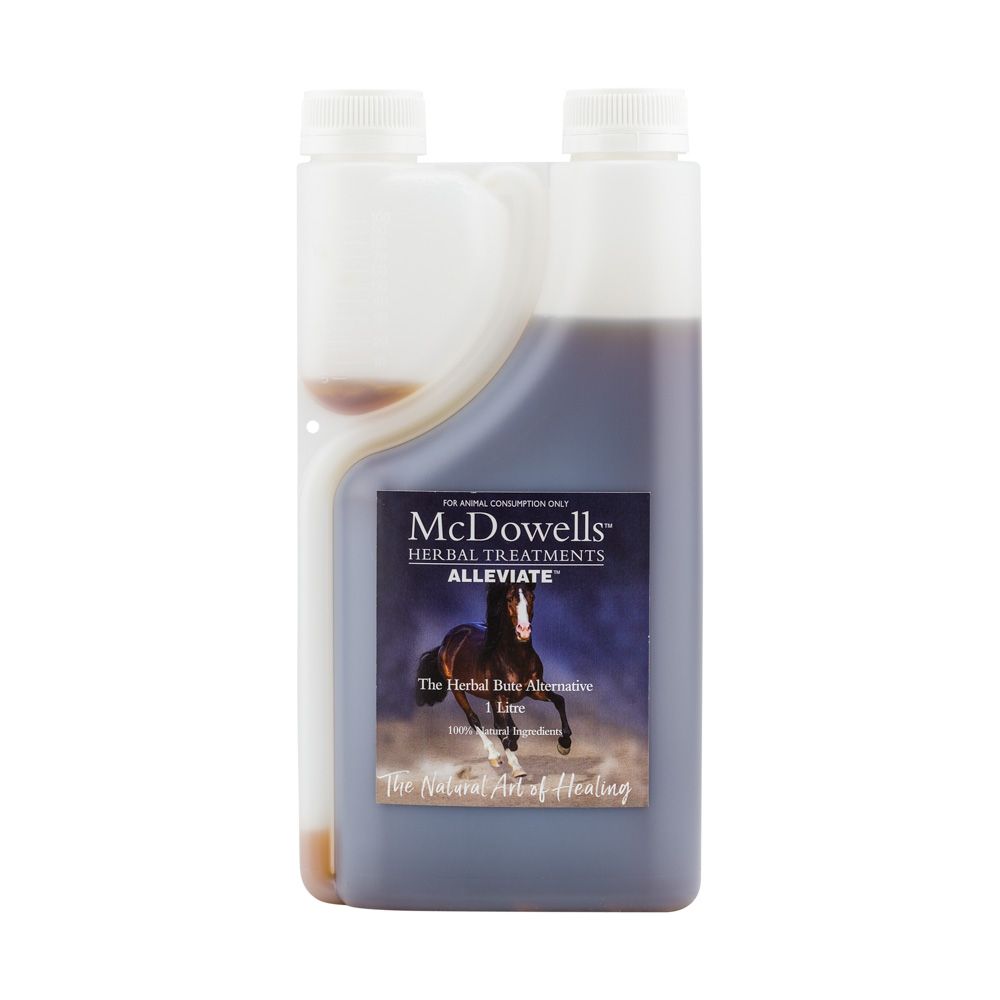A common enquiry at McDowells Herbal is if using Phenylbutazone or ‘Bute’ as it’s commonly known, is dangerous to health. ‘Bute’ is a non-steroidal anti-inflammatory drug used to treat inflammation, pain and fever in animals...

It was originally used as a treatment for humans but was withdrawn from the market as it was found it can cause severe adverse effects such as suppression of white blood cell production and aplastic anemia.
Most but not all Phenylbutazone toxicity deaths and injury come as a complete surprise and do not result from massive overdoses but just ignorance, careless dosing or individual sensitivity.
The benefits of inflammation and pain
Inflammation and pain are both part of the natural healing process. Inflammation and swelling bring fluids to cushion a damaged area and aid in the healing process. Pain will stop us causing further damage by continued use. When we are in pain we are meant to rest, not to continue with the activity which resulted in pain.
How herbal medicine was developed
The anti-inflammatory herbs were "discovered" not by scientists in a laboratory but from initiates who passed down the accumulated knowledge of the herbal medicine available in a particular environment through the generations. Knowledge was also passed down from animal herders watching their stock self-medicate, choosing the right treatment from wild growing herbs at their disposal.
Primitive man and animals instinctively sought out those plant substances which provided relief from pain and assisted healing of these conditions. Instincts drove them to lick, bind or even to chew away at proud flesh around a wound. Those who have been around stock horses and other farm animals will know how often, even a severe open wound, will heal cleanly and with surprisingly little scarring.
Is long-term use of bute dangerous?
This brings us to the discussion as to whether Bute is dangerous to animal’s health.
The first issue with Bute is the complication of masking pain. If we are using Bute as pain relief then there is a risk that the horse will be more active (or potentially too active!) and place more pressure or strain on the injury. Pain is the warning that you’re pushing too hard - without that warning you could be potentially doing even more damage.
It’s not unusual that owners/trainer ask the horse to continue work with an injury, to the detriment of its long term well-being. This obviously varies in individual cases, sensitivities and dose levels. In turn this suggests that Professional Vets are those best equipped to make these decisions and control administration.
Other long-term side effects of prolonged phenylbutazone include:
- Gastrointestinal ulcers
- Blood dyscrasia
- Kidney damage (primarily dose-dependant renal papillary necrosis)
- Oral lesions (if given by mouth)
- Internal haemorrhage
- It can also cause agranulocytosis (lowered white blood cell count)
There are also potential damage that is done to the gastrointestinal tract that can cause leakage of blood proteins into the intestines, edema of the legs and belly. This then leads to decreased appetite, excessive thirst, weight loss, weakness, and in advanced stages, kidney failure and death.
Phenylbutazone should not be used in pregnant or lactating mares as can be transferred via the umbilical cord and the milk.
Unfortunately despite manufacturers recommendations to the contrary, mostly individual owners administer their own ‘Bute’ whether prescribed or obtained outside of the prescription system. Most but not all Phenylbutazone toxicity deaths and injury come as a complete surprise and do not result from massive overdoses but just ignorance, careless dosing or individual sensitivity.
Modern drugs and their potential side effects
The anti-inflammatory properties of the bark of the White Willow has been fully understood for all of mankind's recorded history. Other herbs commonly referred to in the herbal writings of the middle ages (like Culpepper writing in Britain in the 1650's) were Burdock, Guaiacum, and Devil's Claw, all of which were recommended for the relief of rheumatism, arthritis and sciatica. These continue to be utilised by herbalists for exactly the same complaints today!
The modern Aspirin was "discovered" simply by analysing the white willow bark and separating out one of the many medicinal ingredients. This ingredient was then synthesised, patented, and promoted as the active ingredient and modern pharmaceutical companies were born. Aspirin is now being rediscovered as a low dose preventative maintenance medicine said to be useful in preventing heart disease and improving circulation.
With the isolated active ingredient came the age of the side effect That is to say, while white willow bark extract even in quite high dose levels and prolonged use has almost no effect on the gastro-intestinal tract. Aspirin, on the other hand, in even moderate doses and for relatively short periods, can cause ulceration and worse in the stomach and the gut. Even in the low doses (100mg) currently being prescribed in preventative medicine there are emerging signs, particularly in many elderly people, that even these tiny doses are still too strong and cause digestive system irritation and blood vessel fragility. The iron tablets prescribed by your Doctor often cause quite severe constipation while the high iron natural supplements prescribed by your Herbalist are all laxative in their action. (consider Liquorice, Molasses, Prunes, Rosehips Syrup or Nettle Soup for example)
The fact that Aspirin use carries serious risks from side effects and that White Willow Bark does not, is simply because the package of complex chemical substances (dozens of them) which are included within the whole plant extract and excluded from the drug, mesh in a balanced and harmonious way with the complex chemistry of our bodily processes. The principal of the active ingredient is the problem. All ingredients in plant substances are active, and our bodies, which evolved on this earth with the plants, relate well to the packages and mostly not very well with the separate ingredients.
Of course there are other drugs and herbs for that matter, which are out and out poisons which have side effects that produce desirable medical results. Take for example Curare, Atropine and Digitalis (all derived from plants and used by the medical profession and not by Herbalists who consider them far too dangerous) and Methatrexate a chemo-therapy agent sometimes used for arthritis treatment.
Routine usage of chemical medicines is almost always detrimental to long term health prospects. This applies even to so called safe medications like aspirin and it applies much more to stronger ones like Phenylbutazone. This drug while very widely used, can in some cases and even in small doses, cause ulceration of the digestive tract and severe scouring which mostly results in death.
Better management of pain and inflammation
As a herbalist I can prescribe combinations of anti-inflammatory herbs which reduce inflammation and pain, have no side effects, do not swab test and do not mask pain to the extent that the horse will continue with any level of work which will cause long term damage to the injured area. In fact I can go further, and include ingredients which reduce shock, promote healing and clear the blood of toxic residues resulting from or involved in the pain process.
Helpful herbs we prescribe
We recommend and use; White Willow Bark, Devils Claw, Guaiacum, Burdock, Rosehips, Nettle, Equisetum and Elecampane.
Do not attempt to mix these up yourself as there are some cautions with Devils Claw, Elecampane and Guaiacum for example but in the proper proportions you have a safe, healing, anti-inflammatory treatment which will support your horses healing, while making it more comfortable, and may even allow you to safely continue to work it in competition.
This sort of approach should always be the first choice for preventative treatment, management and first aid. Bute should be reserved for emergencies where pain and inflammation must be reduced as a matter of urgency and the risks associated with its use can therefore be justified. As with the herbs, the decisions as to treatment programs and dose levels in emergencies, should be left to the professionals. With this approach the question of allowable levels of Bute in competition horses would not arise.
Other more exotic and dangerous procedures like administering Chemotherapy agents, Pin Firing or injecting Gold, Steroids or Sharks Cartilage into Joints should never be inflicted upon animals. This sort of practice should be left to the Charlatans in human medicine (alternate and orthodox) where at least the patient is involved in the choice.
READ MORE ABOUT FOUNDER AND LAMINITIS
REFERENCES
(1) MacKay RJ, French TW, Nguyen HT, Mayhew IG. Effects of large doses of phenylbutazone administration in horse. Am J Vet Res 1983;44:774–780.
(2) Lees P, Higgins AJ. Clinical pharmacology in therapeutic uses of non-steroidal anti-inflammatory drugs in the horse. Equine Vet J 1985;17:83–96.
(3) NHS: Drugs used in Rheumatic Diseases and Gout Archived 2013-04-29 at the Wayback Machine
(4) Maekawa, Akihiko; Hiroshi Onodera; Hiroyuki Tanigawa; Kyoko Furuta; Jun Kanno; Chiaki Matsuoka; Toshiaki Ogiu; Yuzo Hayashi (1987-01-09). "Long-Term Studies on Carcinogenicity and Promoting Effect of Phenylbutazone in DONRYU Rats". Journal of the National Cancer Institute. 79 (3): 577–584. doi:10.1093/jnci/79.3.577. ISSN 0027-8874. Retrieved 2013-01-24.


